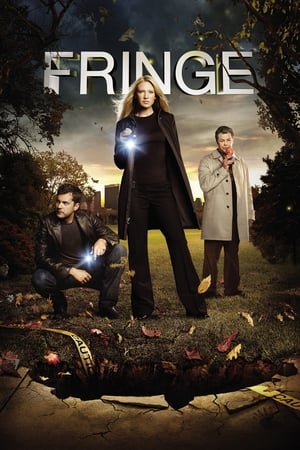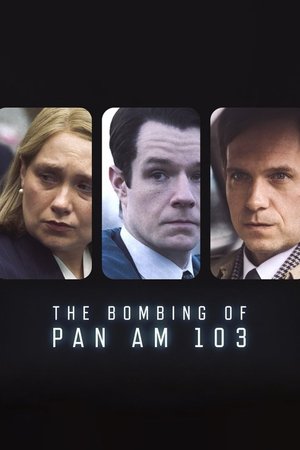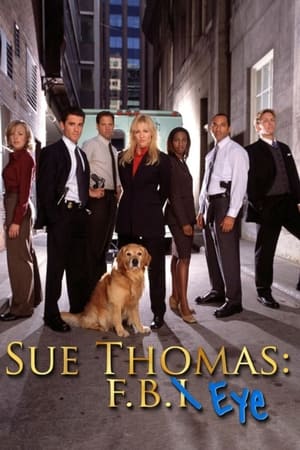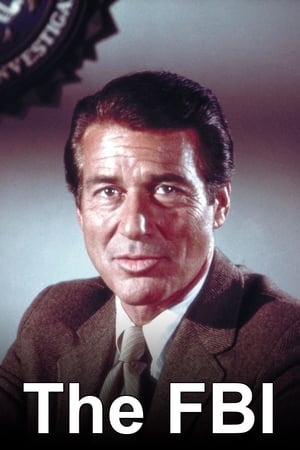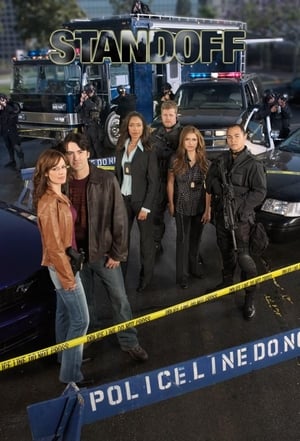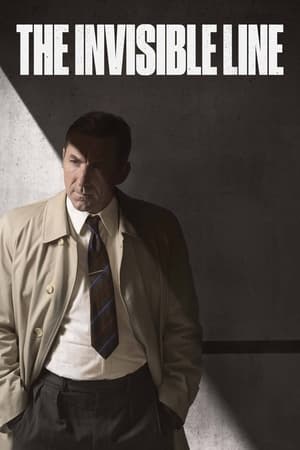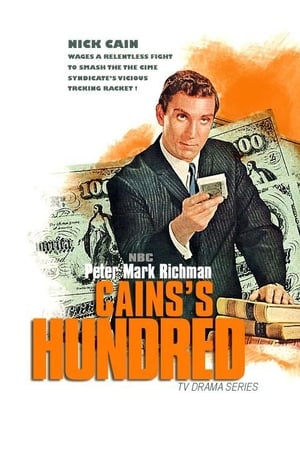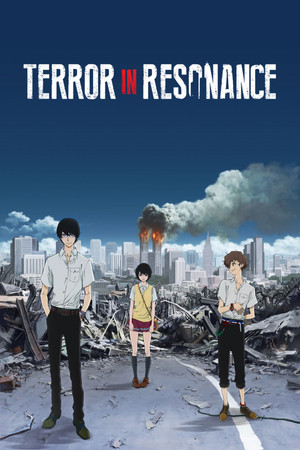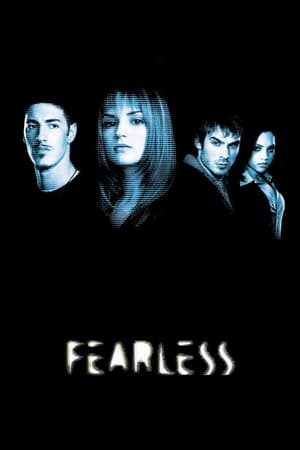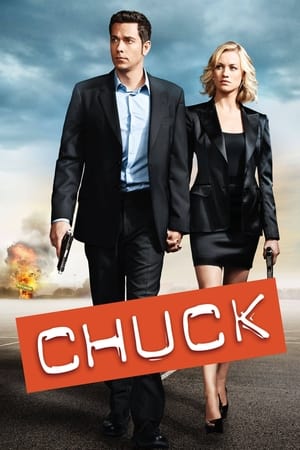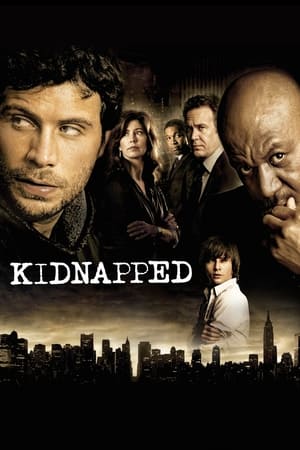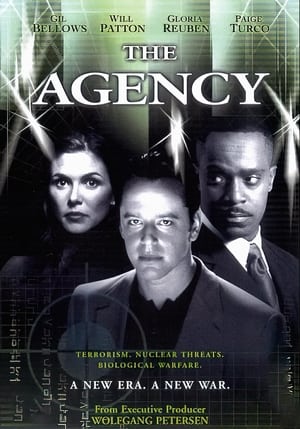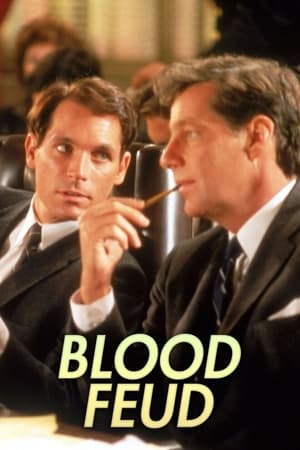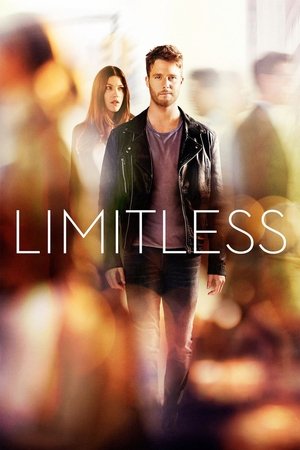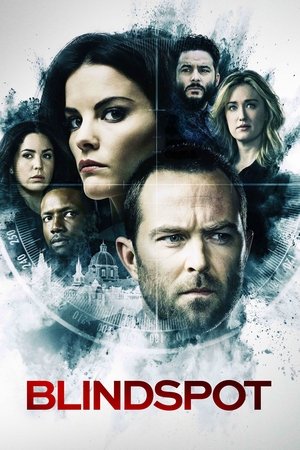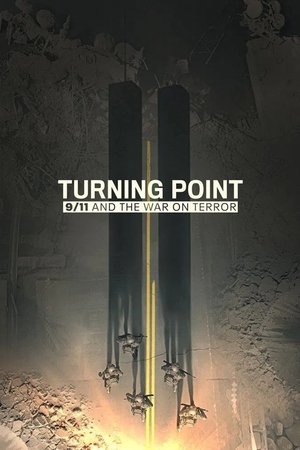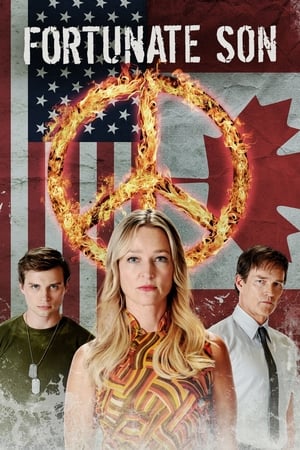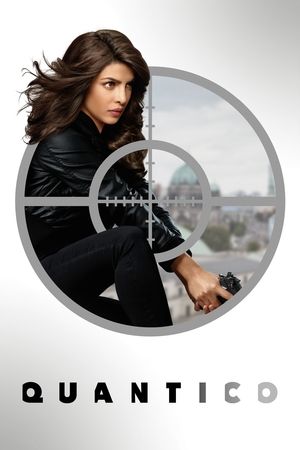Overview
While Osama bin Laden and Al-Qaeda become a global threat, the rivalry between the CIA and FBI inadvertently sets the stage for the tragedy of 9/11 and the Iraq War.
Reviews
**_Complex, intelligent, and sobering; superb television_**
>أَيْنَمَا تَكُونُواْ يُدْرِككُّمُ الْمَوْتُ وَلَوْ كُنتُمْ فِي بُرُوجٍ مُّشَيَّدَةٍ
>[_Wherever you are, death will find you, even in the looming tower._]
- _Qur'an_; Surah 4 Āyah 78
>_We have not been able to corroborate some of the more sensational threat reporting, such as that from a_ [redacted] _in 1998 saying that Bin Ladin wanted to hijack a US aircraft to gain the release of "Blind Shaykh" Umar Abd al-Rahman and other US-held extremists._
>_Nevertheless, FBI information since that time indicates patterns of su__spicious activity in this country consistent with preparations for hijackings or other types of attacks, including recent surveillance of federal buildings in New York._
- "Bin Ladin Determined To Strike in US"; President's Daily Brief (given to George W. Bush on August 6, 2001)
>_We've had no evidence that Saddam Hussein was involved with the September 11th attacks._
- President George W. Bush; Press conference (September 17, 2003)
>_I welcome these hearings because of the opportunity that they provide to the American people to better understand why the tragedy of 9/11 happened and what we must do to prevent a reoccurrence. I also welcome the hearings because it is finally a forum where I can apologise to the loved ones of the victims of 9/11. To those who are here in the room, to those who are watching on television - your government failed you; those entrusted with protecting you failed you; and I failed you._
- Richard Clarke (National Coordinator for Security, Infrastructure Protection and Counter-terrorism, 1998-2003); Opening statement, National Commission on Terrorist Attacks Upon the United States (March 24, 2004)
>_One of the hardest parts of my job is to connect Iraq to the war on terror._
- President George W. Bush; _CBS Evening News_ (September 6, 2006)
>_The most frightening aspect of this new threat was the fact that almost no one took it seriously. It was too bizarre, too primitive and exotic. Up against the confidence that Americans placed in modernity and technology and their own ideals to protect them from the savage pageant of history, the defiant gestures of bin Laden and his followers seemed absurd and even pathetic. And yet al-Qaeda was not a mere artefact of seventh-century Arabia. It had learned to use modern tools and modern ideas, which wasn't surprising, since the story of al-Qaeda had really begun in America, not so long ago._
- Lawrence Wright; _The Looming Tower: Al-Qaeda and the Road to 9/11_ (2006)
> _The Trade Center burned for a hundred days. All during that time, the acrid stench penetrated the office of the FBI, a sickening reminder of their failure to stop the attack and their own narrow escape from death. One active agent, Leonard Hatton, a bomb technician, did not survive. He had worked the embassy bombings and the Cole with O'Neill, and he died trying to rescue victims in the towers. In the hectic, endless months following 9/11, the members of the I-49 squad were sorting through their shock, their grief, and their shame. Better than anyone in the country, they had known the danger America faced. And yet the I-49 squad had been largely alone in its efforts. Since the embassy bombings they had laboured tirelessly, spending months and even years out of the country, many of them losing marriages or significant relationships because of the toll the investigations had taken. They were exhausted even before 9/11. Now their trauma was compounded by the stigma that was assigned to them because they had not prevented the tragedy they had known was coming._
- Lawrence Wright; _The Looming Tower: Al-Qaeda and the Road to 9/11_ (2006)
>**Michael Scheuer**: _I don't care what happens to the people who are targeted and rendered. We wouldn't be operating against them unless they were enemies of the United States._
>**Bill Delahunt**: _What about those that clearly eventually were determined to be innocent?_
>**Scheuer**: _Mistakes are made, sir._
>**Delahunt**: _Mistakes are made?_
>**Scheuer**: _If you can prove that there was not due diligence in designing the target package or assembling the information that caused that operation to go forward, then you have a case against someone. Otherwise, it is a mistake._
>**Delahunt**: _It's just a mistake?_
>**Scheuer**: _Yes, sir. They are not Americans. I really don't care._
>**Delahunt**: _If they were not Americans you don't care? That is very interesting._
>**Scheuer**: _I never got paid, sir, to be a citizen of the world. Maybe you do._
- Joint Hearing on "Extraordinary Rendition and U.S. Counterterrorism Policy: The Impact on Transatlantic Relations"; Michael Scheuer (formerly head of "Alec Station", the CIA's bin Laden unit) questioned by Rep. Bill Delahunt, D-Mass. (April 17, 2007)
_The Looming Tower_ tells the story of how the 9/11 attacks were made possible by the internecine squabbling between the two law enforcement agencies most charged with keeping the United States safe; the CIA and the FBI. Based on _The Looming Tower: Al-Qaeda and the Road to 9/11_ (2006), Lawrence Wright's exhaustively researched and critically acclaimed winner of the Pulitzer Prize for General Non-Fiction in 2007, the narrative takes us to Afghanistan, Albania, Egypt, England, Kenya, Morocco, South Africa, Tanzania, and Yemen, as well as US cities such as Las Vegas, New York, and Washington DC. However, it's important to note that the series has a very different focus than the book. Whereas the vast majority of Wright's book deals with the formation and rise of al-Qaeda, the TV show focuses almost exclusively on the American perspective. In this sense, it's an altogether simpler and more linear animal; whereas Wright details the complex decades-spanning context behind al-Qaeda's jihad, the show focuses on American in-fighting in the three years immediately preceding the attacks. This makes sense; the show is American financed, originally aired on an American network, and will be seen by predominately American audiences (or at the very least, predominately Western audiences), so having an Americentrist viewpoint is a logical strategy (not to mention that it would be virtually impossible, and prohibitively expensive, to accurately reproduce Wright's sprawling narrative in a visual medium). Certainly, there are depictions of some of the terrorists; Mohamed Atta (who was chosen by Ayman al-Zawahiri as the operation's overall leader) is given a small subplot showing how disgusted he is with American culture, particularly the ubiquity of sexuality, whilst both Khalid al-Mihdhar and Nawaf al-Hazmi (the first hijackers to arrive in the US), are given some rudimentary backstory. But this is fundamentally an American story, with Wright's two central characters, al-Zawahiri and bin Laden, appearing in only a couple of scenes and in archive footage, respectively. More specifically, whilst the book is about how al-Qaeda succeeded (with a lot of time spent delineating just why they hated American culture so much), the TV show is about how the US failed. It's a story of arrogance, incompetence, ignorance, and tragic inevitability. And although the binary of CIA=bad/FBI=good is more than a little reductionist, and whilst there's a real dearth of information on al-Qaeda itself, this is a deeply sobering series, which is at its infuriating best when it shows us, as it does time and again, just how easily these globe-altering events could have been prevented.
Although framed by the 2004 National Commission on Terrorist Attacks Upon the United States, the story begins in 1998. Neither al-Qaeda nor Osama bin Laden (referred to primarily as "UBL") are especially well-known to the public, but both the CIA and the FBI each have a dedicated "bin Laden unit". The CIA's "Alec Station" (officially the Bin Laden Issue Station) is run by Martin Schmidt (a condescending and reptilian Peter Sarsgaard playing a thinly-fictionalised Michael Scheuer), whilst the FBI's I-49 (a specialised unit within the Bureau's Joint Terrorism Task Force) is run by John O'Neill (an obstreperous Jeff Daniels in full bull-in-a china-shop mode). Each unit is required, by law, to share all intelligence with the other, but, in reality, neither shares much of anything except insults, although Alec Station is definitely the more hostile of the two. Although ostensibly working towards the same goal, and although of a similar belief that al-Qaeda is far more dangerous than the government are willing to admit, the two units are as different as their respective leaders; Schmidt believes the FBI is prone to mishandling intelligence and impulsively arresting low-level players instead of working their way patiently up the chain-of-command, whilst O'Neill abhors Schmidt's damn-the-torpedoes and screw the collateral damage approach, particularly his constant recommendations to carpet-bomb Afghanistan every time he has a lead on UBL's location, however tentative. In between the two is Richard Clarke (the never-less-than-stunning Michael Stuhlbarg), National Coordinator for Security, Infrastructure Protection and Counter-terrorism, whose job it is to make recommendations to President Clinton on issues of national security. As the show begins, Ali Soufan (Tahar Rahim), a non-practising Muslim Lebanese-American (and one of only eight Arabic speakers in the Bureau), has just been assigned to I-49, bringing some much needed Islamic insight. Shortly thereafter, UBL is interviewed for _ABC News_, promising a grand statement in the near future unless the US pull out of the Middle East. The American public, however, and even more so the American media, are far more interested in the Monica Lewinsky scandal than the frankly ridiculous idea that an obscure sheikh living in the mountains of a far-flung country could launch any kind of significant offensive on American soil.
And so, as O'Neill continues to butt heads with Schmidt and his right-hand woman, Diane Marsh (an ice-cold Wrenn Schmidt playing an amalgam of at least three people, including Alfreda Bikowsky of _Zero Dark Thirty_ fame), the show depicts such events as the US embassy bombings in Nairobi and Dar es Salaam; Clinton testifying before the grand jury; Operation Infinite Reach; the Millennium plot; the bombing of the _USS Cole_; the inauguration of George W. Bush and his appointment of Dick Cheney as Vice President, Condoleezza Rice as National Security Advisor, Donald Rumsfeld as Secretary of Defense, and Karl Rove as Senior Advisor to the President; and, ultimately, 9/11 itself. Along the way we're introduced to a litany of supporting characters, including Robert Chesney (Bill Camp, going from strength to strength), one of O'Neill's most capable agents; Vince Stuart (Louis Cancelmi playing a character based on Mark Rossini), one of two FBI agents assigned to Alec Station; Toni-Ann Marino (Jamie Neumann), Stuart's partner; Heather (Ella Rae Peck), a special needs teacher dating Soufan; Liz Egan (Annie Parisse), one of O'Neill's mistresses; Sheri (Katie Finneran), another of his mistresses; Maria (Tasha Lawrence), O'Neill's wife; George Tenet (Alec Baldwin), Director of the CIA; Jason Sanchez (Yul Vazquez), O'Neill's immediate superior; Barbara Bodine (Jennifer Ehle), US Ambassador to Yemen; Condoleezza Rice (Eisa Davis), National Security Advisor to President Bush; General Ghalib al-Qamish (Ali Suliman), director of Yemen's Political Security Agency; Omar al-Bayoumi (Sami Karim), a Saudi intelligence agent; Chief Superintendent Barry James (Tony Curran) of Scotland Yard; Ayman al-Zawahiri (Nasser Faris), one of the founders of al-Qaeda; Khalid al-Mihdhar (Tawfeek Barhom), Nawaf al-Hazmi (Nebras Jamali), Mohamed Atta (Zafer El-Abedin), and Walid bin Attash (Samer Bisharat), al-Qaeda members; Hoda al-Hada (July Namir), al-Mihdhar's wife; Abu Jandal (Zaki Youssef), a former al-Qaeda member; and Khalid Sheikh Mohammed (Ibrahim Renno), the main architect of the 9/11 attacks.
_The Looming Tower_ was developed for TV by Wright himself, Dan Futterman, the two-time Academy Award-nominated writer of Bennett Miller's _Capote_ (2005) and _Foxcatcher_ (2014) and executive producer of such shows as _In Treatment_ and _Gracepoint_, and Alex Gibney, the prolific Academy Award-winning documentarian behind films on subjects such as the collapse of Enron (_Enron: The Smartest Guys in the Room_), the torture and murder of Dilawar Yakubi by the US Army (_Taxi to the Darkside_), the Catholic Church sexual abuse scandal (_Mea Maxima Culpa: Silence in the House of God_), Julian Assange (_We Steal Secrets: The Story of WikiLeaks_), the Lance Armstrong scandal (_The Armstrong Lie_), Scientology (_Going Clear: Scientology and the Prison of Belief_), Stuxnet (_Zer0 Days_), and the Elizabeth Holmes/Theranos scandal (_The Inventor: Out for Blood in Silicon Valley_). According to Futterman, "_it was a terrible thing that happened and it happened to real people._ The Looming Tower _shows the audience when and how, and invites them to ask why_", whilst Wright states simply, the show is about "_what went wrong, why did we fail_".
No better example of this failure is "Bin Ladin Determined To Strike in US"; the President's Daily Brief (PDB) issued by the CIA and given to Bush on August 6, 2001, which specifically stated that al-Qaeda was planning to use hijacked airplanes for suicide missions ("_patterns of suspicious activity in this country consistent with preparations for a hijacking_"), even citing New York as a possible target. The document was classified and unknown to the public until it was revealed by _CBS Evening News_ on May 15, 2002. The PDB was later declassified for the 9/11 Commission, and, as seen in the penultimate episode, "Tuesday", on July 22, 2004, Rice and Tenet were quizzed as to why no one acted on the information contained within.
Another example of institutional failure depicted in the series concerns the FBI agents assigned to Alec Station. Although the series depicts these agents as Vince Stuart (a character based on Mark Rossini) and Toni-Ann Marino, in fact, it was Rossini and Doug Miller who were assigned to Alec. As early as January 2000, Alec Station was aware that al-Mihdhar was planning to come to New York, and upon learning this, Miller tried to alert I-49. He was prevented from doing so, however, by deputy station chief Tom Wilshire, who threatened to charge him with treason should the intelligence be communicated to the Bureau. Miller asked Rossini for help, but he too was blocked from acting (in the series, it's Stuart who tries to alert O'Neill, but he is prevented from doing so, first by Schmidt, and later by Marsh).
Another element to which the series returns time and again is how both the Clinton and Bush administrations underestimated al-Qaeda and UBL. This is initially touched on in the first episode, "Now It Begins...", after UBL has been interviewed by John Miller (C.J. Wilson) for _ABC News_. Discussing the significance of the interview, O'Neill and Soufan have the following conversation;
>**O'Neill**: _Talk to me about the interview._
>**Soufan**: _I think it's the third warning. First was the '96 declaration of jihad. Then the February fatwā. And now, bin Laden is going straight to the American people._
>**O'Neill**: _Why three times?_
>**Soufan**: _There's this unauthenticated Ḥadīth, the sayings of the Prophet Muhammad, some think he said it, some don't; " When you see a snake in your house, you should warn it three times. If it returns, you must kill it. It is a devil."_
>**O'Neill**: _UBL's warning the snake to get out of his house._
>**Soufan**: _Telling America to get out of the Middle East, out of Saudi Arabia in particular._
>**O'Neill**: _That's why he wanted to get on TV._
>**Soufan**: _He used Miller's interview to appear strong by threatening the United States as he looked an American directly in the eye._
Despite this direct challenge to the US, however, the media is far more concerned with a semen stained dress than the seemingly inconsequential threats of a crazed Muslim of whom no one has ever heard. Subsequently, in the fourth episode, "Mercury", the following conversation takes place;
>**Soufan**: _Al-Qaeda isn't a normal enemy force. You can't just cut the head off the snake. It's more pervasive. It's like the "mercury" theme in_ Terminator 2.
>**O'Neill**: _Never saw it._
>**Soufan**: _In the movie, the enemy, the T-1000, which is an android assassin played by Robert Patrick, has harnessed the properties of liquid metal, which quickly disperses and reconstitutes. Therefore, he's virtually impossible to defeat. Bin Laden is espousing an ideology that exists at the cellular level. Cancer by its most basic definition is the multiplicity of cells, and al-Qaeda is a cancer._
>**O'Neill**: _You're starting to mix your metaphors._
>**Soufan**: _My point is that al-Qaeda is not going to be defeated by simply gunning down the boss. To them, martyrdom is the purest kind of poetry. It's beyond poetry. It's eternity. Each time we snuff a part of it out, it'll keep resurfacing. It goes that deep. Killing Bin Laden is only going to secure his legend and inspire more and more martyrs._
This is presented as something that both the Clinton and Bush administrations are unable to understand, primarily because they don't attribute to UBL any great importance; he's just one fanatical Muslim in a world full of fanatical Muslims. This theme comes up again in "Mercury" when Schmidt proposes bombing a bird hunt that "_will consist of UAE princes, unknown members of the Taliban, and possibly bin Laden_". O'Neill, however, echoing Soufan, counters,
>_if we do this, we might as well send al-Qaeda bronze bin Laden statues to erect in front of all their training camps. Within days, there will be a million more recruits ready to sign up. Do you even understand the concept of martyrdom? This isn't a war about one man. Bin Laden is an ideologue, not some plutocrat running a banana republic. His people actually believe. It's bin Laden-ism we're up against, not just bin Laden._
This last sentence could very well be the show's mantra – the US government fundamentally underestimated and misunderstood not only al-Qaeda's logistical capabilities, but the unwavering devotion of its members to UBL's ideology; in a very real sense, al-Qaeda's religion was bin Laden-ism before it was Islam. Important to remember here, and something the series depicts very cogently, is that O'Neill and Schmidt each believe and want the same thing – they each believe UBL is exceptionally dangerous and they each want to get rid of him. So as the administration underestimates him time and again, Alec Station and I-49's inability to work together is foregrounded – if they had stopped the pissing contest for five minutes and had one another's back, they might have stood a chance of convincing others of the danger. Instead, they elected to undermine one another.
This is not to suggest they would have been successful, but they certainly would have had a better shot. Just what they would have been up against, however, even as a united front, is illustrated in the third episode, "Mistakes Were Made". After O'Neill returns from a trip to London, he and Clarke have the following exchange;
>**O'Neill**: _Trying to get these guys, it's like chasing ghosts._
>**Clarke**: _We'll get them._
>**O'Neill**: _I was gone, and you got talked into bullshit by Tenet and Schmidt, who don't give a shit about my people and what we're doing over there._
>**Clarke**: _It wasn't their call. It was the President's call._
>**O'Neill**: _Well, here's what you should've told the President - bin Laden's laid a trap, and we're walking right in it and nibbling the cheese. He wants to go to war._
>**Clarke**: _John, the United States military is the United States military. This is not a war al-Qaeda can win._
>**O'Neill**: _Well I'll tell you the first thing that'll happen after the bombs fall and the dead get cleared away. They'll get a ton of new recruits._
When even someone as open-minded and practical as Richard Clarke sees the al-Qaeda threat as something that the US could easily handle (at least initially), you know such thinking runs especially deep within the intelligence community.
And this tendency to underestimate UBL becomes even more pronounced under the Bush presidency, with some of the series' best and most maddeningly infuriating scenes involving O'Neill and a newly concerned Clarke attempting to impress upon anyone who'll listen just how dangerous al-Qaeda is. In the eighth episode, for example, "A Very Special Relationship", shortly after her appointment as Secretary of State, Rice attends a meeting with Clarke, and, in one of the finest written scenes I can remember in a TV show in quite some time, she interrupts his presentation on al-Qaeda, and they have the following exchange;
>**Rice**: _I have a lot of work to do. The president has a lot of work to do. So what I need from you today is the short version._
>**Clarke**: _How are you going to advise the president if you just skim the Cliff Notes?_
>**Rice**: _I'd like to do a second degree. I really would. I like to study. But I don't have time. I have another meeting in a half hour._
>**Clarke**: _I told Reed you should clear the morning._
>**Rice**: _And I told Reed you do not dictate my schedule._
>**Clarke**: _Please do not blow off the research. You need to understand this. We're talking about the current greatest threat to national security -_
>**Rice**: _Then let's keep this very simple. Who are they?_
>**Clarke** [exasperated]: _Who's who? Who's al-Qaeda?_
>**Rice**: _Right._
>**Clarke** [becoming more and more irritated]: _That's precisely what I'm trying to explain to you._
>**Rice**: _You reported directly to President Clinton, did you not?_
>**Clarke**: _I did. And President Clinton -_
>**Rice**: _You won't be needed to report directly to President Bush. Take the deep dives. That's your job. But when you put something in writing, if you want it to get to the President, keep it pithy_.
And at this point, she ends the meeting and leaves a stunned Clarke standing in an empty room. A later scene in the same episode has a similar tone as Rice meets with Clarke, Tenet, Marsh, and O'Neill (who has recently been told by Sanchez that he needs to resign immediately);
>**Rice**: _I don't deal in generalities. I need specifics._
>**Tenet**: _And specifics you shall have, good lady. The NSA's been hearing a lot of chatter from various terrorist cells. We're concerned about a potential attack on Jordan, Saudi Arabia, Israel -_
>**Rice**: _The word "potential" is inherently unspecific._
>**Tenet**: _And Genoa, Italy, for this year's G8 Summit._
>**O'Neill**: _Hey, George? Listen, I gotta tell you something. I gotta tell all of you guys something. I'm gone. I'm out._
>**Tenet**: _I heard._
>**O'Neill**: _So this is my last meeting. It's my last one of these. So I just want to say straight up to the Agency guys, okay? Maybe your people won't talk to my people because somebody's got a hard-on for me. But I'm out of here. It's not about me anymore. My people, my guys are trying to keep Americans safe. Forget the fucking Genoese for a second._
>**Rice**: _Maybe let Mr. Tenet finish, Mr?_
>[O'Neill is stunned that she doesn't know who he is, and for the first time, he's speechless. Instead of answering, he simply stares at her, unable to process what has just happened – how can the Secretary of State not know who the head of the FBI's bin Laden unit is?]
>**Clarke** [trying to cover for O'Neill's silence]: _Mr. O'Neill makes an excellent point. There are terrorists here. I explained to you about the terrorist cells and the transnational nature of -_
>**Rice**: _Who is here? Is there someone in the United States that is a clear and present danger that I need to be worrying about right now, or are you talking about swatting flies? Because the president has told me he has no interest in swatting flies._
>**Clarke**: _John is right. We have had repeated trouble with the sharing of information between Alec Station and I-49._
>**Rice**: _Are you, George, aware of any information that hasn't been shared?_
>**Tenet**: [after a brief pause] _The president is correct. We need to have a comprehensive strategy, which is why I'm meeting with him on Tuesday when he gets back from Texas._
>**Rice**: _Okay. Let's move on._
Again, the writing here is razor-sharp, clinically depicting just how lackadaisical the in-coming Bush administration was concerning issues of national security. The acting is also exceptional, with Daniels knocking it out of the park in playing O'Neill's utter bafflement at the fact that Rice doesn't know his name.
Of course, one of the main themes of the series is ideology – whether the "bin Laden-ism" of al-Qaeda, the cult-like Alec Station (which was nicknamed "The Manson Family" in real-life), the boots-on-the-ground mentality of I-49, or the US's unassailable confidence in its own global authority. Characters repeatedly espouse ideological doctrine to either justify their actions or try to convince others of their position. For example, in the second episode, "Losing my Religion", when Soufan is in London, he attends a talk by Abu Hamza al-Masri (Osh Ghanimah), who preaches,
>_we find ourselves in a land where temptations are everywhere, inside each cinema, every pub, so what do we do? The messenger of Allah, peace be upon him, teaches us of jihad al-nafs, struggle of the soul, our inner struggle of good against the evil one, Shayṭān. But then we have a duty to turn outward, to fight the impurities of the world, the infectious growth of non-believers in the Muslim land of the holy sites, in Mecca and Medina, in Afghanistan and Pakistan, from jihad al-nafs, jihad of the soul, to jihad bil-saif, jihad of the sword. All of us have this obligation._
Although espousing a very different ideology, in "Mistakes Were Made", Marsh proves equally passionate when explaining her worldview,
>_we're always at war. I learned that on the Russia desk. Every single day is a real live battle between our country and her many devious and far less tasteful enemies. And we all have a choice. You can pretend it isn't happening, like my mother, and make chit-chat about dog shelters and pizza toppings, or you can accept the world as it really is, and do whatever you can to make sure your side isn't the one that gets annihilated._
Another major theme is faith. That this should be so is kind of a given, as it would be for any narrative depicting Islamic fundamentalism. However, the show seems less interested in the blind devotion of UBL's followers than in the lapsed faith of O'Neill and Soufan. According to Futterman, the series suggests how important it is to "_understand our own faith and other people's faith_", and in relation to this, O'Neill understands his Catholicism from an intellectual perspective, he simply no longer believes in it from a spiritual perspective. This is something that deeply troubles Liz, who's a practising Catholic, with the two having the following exchange in "Losing my Religion";
>**Liz**: _I know your feelings about the church are complicated_.
>**O'Neill**: _You're right. They're complicated. I started every morning, all the way through Jesuit High School, going to mass. I had a Catholic wedding, you know, the four-hour kind. I know it's important to you._
>**Liz**: _Would you ever consider taking communion again?_
>**O'Neill**: _"Whoever eats this bread in an unworthy manner is guilty of sinning against the body of the Lord."_
>**Liz**: _Because you're divorced? That's not what Paul meant. It's about future intention, not past sin._
Except, of course, O'Neill isn't divorced; something which is a significant problem for him because his wife Maria is a more stringent Catholic than Liz, one who doesn't believe in divorce at all. On this subject, in "Mercury", O'Neill has the following conversation with Cardinal James Hickey (Robert Vincent Smith);
>**Hickey**: _I hate to say it, John, but regarding your prospects with Elizabeth, you're looking at an uphill battle. In order to remarry within the Church, you have to first nullify your current marriage, and Maria isn't necessarily going to cooperate._
>**O'Neill**: _She's still hanging on. To what, I don't know._
>**Hickey**: _She obviously still loves you._
>**O'Neill**: _We've been over for a long time, Cardinal._
>**Hickey**: _When you and Maria got married, you took an oath before God, and there are consequences for breaking that oath. If the marriage is not properly nullified, then not only can you not remarry within the Church but you cannot receive the Holy Eucharist._
>**O'Neill**: _What about Maria? Would she be able to take communion?_
>**Hickey**: _No, not under those circumstances._
>**O'Neill**: _But my abandoning the marriage, that wasn't her fault._
>**Hickey**: _Unfortunately, God does not see it that way._
>**O'Neill**: _Well, Maria has to take communion. It's that important to her._
>**Hickey**: _As it should be. You came to me today looking for a loophole._
>**O'Neill**: _Well, we are in Washington. You sure there's not some little crack in the magisterium that would allow Maria to maintain her good standing?_
>**Hickey**: _Well if you were to die. How's that for a loophole?_
In regards Soufan, although he is initially introduced as no longer practising Islam, early in the first episode, before he testifies at the 9/11 Commission, we see him observing the Salah, so we know that at some point between 1998 and 2004 he will regain his faith. From the start, however, whether he practices or not, the faith-based nature of al-Qaeda's ideology deeply troubles him, as he tells James in London, "_when people use my religion to justify this shit, it affects me_". Indeed, one of the most welcome elements of the show is that although there isn't a huge amount of time spent depicting the Muslim community, there are a couple of scenes that highlight some of the positive aspects of the culture, stressing the similarities between Muslims and other religious groups. This is especially the case in "Mercury", when Soufan attends a social gathering that's depicted as in no way different from any other social gathering, irrespective of faith. Even some of the terrorists are given a degree of context, much of which challenges the notion that all Muslims subscribe to Islamic fundamentalism; the depiction of al-Mihdhar's wife, Hoda al-Hada, is particularly interesting in this sense, as she doesn't subscribe in any way to her husband's belief in UBL's jihad. Instead, she's far more concerned with her young children knowing their father than the otherworldly blessings of Allah.
From an aesthetic point of view, the show is unfussy, with little in the way of stylistic gymnastics on the parts of directors Alex Gibney ("Now It Begins..."), John Dahl ("Losing My Religion" and "Mistakes Were Made"), Ali Selim ("Mercury" and "Y2K"), Michael Slovis ("Boys at War" and "The General"), and Craig Zisk ("A Very Special Relationship", "Tuesday", and "9/11"). Having said that, however, there are some laudable aesthetic elements. For example, in "Now It Begins...", during Miller's interview with UBL, the show cuts fairly seamlessly between real footage of the interview and a reconstruction of the scene. This episode also ends with a terrific shot that tilts up from a train to reveal the World Trade Centre dominating the skyline, reminding us of how this story will end. "Losing My Religion" also features noteworthy editing, as the episode cuts from ominous scenes at Alec Station to news footage of Lewinsky, driving home just how diverted the nation's attention was. Probably the most notable stylistic moment, however, comes in "Tuesday". The episode opens with Baldwin playing Tenet as he gives his testimony before the 9/11 Commission, followed by Davis playing Rice. The episode then ends with archival footage of Tenet and Rice's real testimonies. Apart from the fact that this illustrates how good the performances are, it also serves to remind us that this is not fiction; these things happened, and, as Futterman says, "_they happened to real people_".
On the other hand, the aesthetic does let the show down from time to time. For the most part, fashion and hairstyles are far more contemporary than they should be, with only Marino really looking period-authentic. This tendency towards aesthetic anachronism becomes far more important, however, in "Y2K", where there appears to have been little effort to make the New Year's scenes in Times Square look authentic, with modern police cars and taxis clearly visible, and no attempt to hide the façades of buildings that didn't exist in 2000. Even worse are the scenes set in Manchester and London. For Soufan's arrival in London, Tahar Rahim has been composited into stock footage of Piccadilly Square, but it's painfully obvious that it's an FX shot, and it completely pulls you out of the story. Similarly, the scenes in Manchester are clearly shot in the US, with little effort made to hide giveaways such as cars, street signs, and architecture.
When it comes to the acting, however, the show absolutely excels, with Bill Camp and Michael Stuhlbarg completely stealing every scene they're in. Stuhlbarg was robbed of an Oscar nomination for Luca Guadagnino's _Call Me By Your Name_ (2017), which he should have won for the " I am not such a parent" scene alone, so it was nice to see him nominated for an Emmy for _The Looming Tower_. As for Camp, although his work on _The Night Of_ also received an Emmy nomination, his Oscar-worthy performance in Paul Dano's _Wild Life_ and his mesmerising appearance in _The Leftovers_ (playing God no less) were both ignored by the major awards shows.
Camp's performance in _The Looming Tower_ is the more grandiose of the two, and he's given an amazing scene in "Mistakes Were Made" when he interrogates Mohamed al-Owhali (Youssef Berouain) in the wake of the bombing of the US embassy in Nairobi. With just the two of them in the room, Camp plays the scene very quietly and calmly, fondly recalling his military service, drawing al-Owhali in, gaining his trust, making him comfortable. The eight-minute scene (which gives us nothing but two men sitting at a table and talking) culminates when Chesney suddenly switches tactics, screaming at al-Owhali to give him the relevant information. Camp's explosion is mesmerising, perfectly transitioning from a gentle, almost paternal attitude to fiery and intimidating. It's an extraordinarily well-acted, well-directed, and well-edited scene, and a masterclass in dramatic pacing.
For his part, Stuhlbarg plays Clarke as perennially frustrated. At first, it's because he has to play referee between O'Neill and Schmidt, but once the Bush administration comes in, his frustrations reach a new level, especially when dealing with Rice. Stuhlbarg never lets Clarke's quiet politeness slip, but on several occasions, he hovers tantalisingly on the edge, in what is an exceptionally nuanced and subtle performance. He's especially good in a scene late in "9/11", after the attacks have happened, as he earnestly and confidently tells Rice,
>_both the CIA and FBI have agents on the ground, trying to nail down concrete evidence linking these attacks to bin Laden and al-Qaeda in Afghanistan. I've heard from Yemen that we've finally been given access to certain individuals close to UBL. We hope to very soon be able to give the Taliban an ultimatum: give up bin Laden or face the wrath of the United States military._
Rice's response, however, is not something he expected;
>_Rumsfeld wants the attacks linked to Saddam Hussein and Iraq._
This, of course, is an allusion to the illegal war pursued by the Bush administration after 9/11, itself a narrative of American incompetence, ineptitude, and arrogance, but Clarke's simple response to Rice is perfectly played by Stuhlbarg, who subtly modulates his voice as he asks, uncomprehendingly,
>_What did you say?_
Elsewhere, the Emmy-nominated Daniels plays O'Neill as a boisterous, foul-mouthed bulldog of a man, who cares not a jot what feathers he has to ruffle to get what he wants (look at his scene with Bodine in "The General"). The Critics' Choice nominated Sarsgaard, on the other hand, plays Schmidt as O'Neill's pretentious polar opposite, quiet, calm, patient, and insidious. Whereas O'Neill is all passion and rage, Schmidt is cold and emotionless. Each is completely earnest in their nationalistic desire to keep the US safe and defeat al-Qaeda, but their methodologies and personalities make working together impossible – whereas O'Neill wants to make arrests and put people on trial, Schmidt advocates bombing anywhere UBL may be or, failing that, renditioning him to Egypt.
Of course, the show does have its problems. For one, there's the shift in focus from the book. Sure, it probably won't be felt by anyone not familiar with the text – you're not going to be watching the TV show and think, "something doesn't feel right here". However, at the same time, there's almost nothing on why al-Qaeda hated the US so much (one of Wright's main themes), and literally nothing at all on the group's background, what gave rise to such an organisation in the first place (like many scholars, Wright traces the intellectual foundation to Egyptian educator Sayyid Qutb's time in America from 1948-1950, particularly his article, "Amrika allati Ra'aytu" ("The American I Have Seen") wherein he criticises, amongst other things, materialism, superficiality, the love of sports, individual freedom, "poor" haircuts, the "animal-like" mixing of the sexes ("even in churches"), and the heretical dietary habits). This kind of context is hugely important to any depiction of al-Qaeda, so for the series to offer us nothing on their origins is disappointing. Another issue is how on the nose things can be, no better example of which is found in "Boys at War". Towards the end of the episode, as a young boy prepares to join the suicide mission to bomb the _USS Cole_, he's momentarily distracted by a group of children roughly the same age as him playing football nearby. The scene is intended to drive home that this is just a child, and he should be enjoying his childhood, but the rigid binary nature of the "choice" before him is anything but subtle.
Elsewhere, a bizarre subplot in the first episode sees Chesney strike up a romantic relationship with Deb Fletcher (Sharon Washington), chief of station for the US embassy in Nairobi. The storyline is intended to give us an emotional connection in relation to the subsequent bombing, which happens at the end of the first episode, whilst Chesney spends the second searching for her. Really though, it's out of place and tonally divorced from everything surrounding it. The showrunners should have trusted in the strength of the story they're telling; contrived and emotionally inauthentic elements like this are unnecessary.
Along the same lines, the show is at its weakest when depicting O'Neill's labyrinthine personal life, Soufan's relationship with Heather, and the tentative romance between Schmidt and Marsh. Much of this material feels rote and generic, like romantic subplots forced into the story so as to counter the testosterone-soaked main narrative (although to be fair, Scheuer and Bikowsky did end up married). By its very nature, this is an androcentric series, and aside from Marsh, there are no major female characters. Nothing wrong with that, of course; the story being told is a story of men. The romantic subplots, however, feel like the showrunners trying to meet a quota for representation, and so they inserted some poorly delineated romantic subplots to shoehorn women into the equation.
The most egregious problem, however, is the rigid binary distinction between the FBI and the CIA, wherein the FBI are the honourable team players whilst the CIA are the paranoid and duplicitous pseudo-villains. This distinction is personified in O'Neill and Schmidt, but it never rings entirely true. Sure, the show isn't afraid to tell us that O'Neill is far from perfect; he's a womaniser and is often far too aggressive, alienating people for no reason, when someone in his position should at least try to make allies. Nevertheless, he's still the show's protagonist and is depicted as fundamentally honourable. And the real O'Neill may very well have been fundamentally honourable. The problem is that the series depicts I-49 in much the same way; bullish but decent and enlightened. They're the good guys.
Schmidt, on the other hand, is essentially the biggest asshole in the history of the Agency, a permanently smirking, patronising, and dishonest jerk, who fulfils the role of pseudo-antagonist. The best you can say of him is that he seems to genuinely think his way of doing things is what's best for the country. However, he's so convinced of his own genius that he thinks anyone who would dare to disagree with him about anything must be a moron, and as O'Neill disagrees with him about everything, he hoards evidence and engages in a futile turf war. To be fair, there can be little argument that Scheuer is a hateful, toxic, and thoroughly arrogant individual (since leaving the Agency in 2004, he has called for European countries to reinstate the death penalty, repeatedly championed the process of illegal rendition, and advocated the murder of outspoken Trump critics). However, there's also some nuance to the man. For example, he was highly critical of the Iraq War, and has taken Cheney to task for demonising anyone who opposed the conflict as unpatriotic. Schmidt has none of this complexity and is instead relatively one-dimensional. And again, as with O'Neill/I-49, the personality of the leader extends to the unit, with Alec depicted as clinically detached and emotionless, especially Marsh, who is also shown as blatantly lying to the 9/11 Commission, claiming that she hand-delivered to the FBI crucial documents on al-Mihdhar and al-Hazmi when FBI sign-in logs show she did no such thing (although this part of the story is actually true; Bikowsky made the same claim, and it was disproven the same way). The point is there's not a huge amount of grey in the depiction of the US's two main law enforcement agencies, whereas a little more nuance would have been far more effective and interesting.
However, if this sounds too negative, let me be clear, _The Looming Tower_ is a taut, complex, and politically fascinating story of inevitability. It can't be easy generating tension when your audience already knows what's going to happen, but the show leans into this, and as you watch scene after scene after scene where the warnings just aren't taken on board, the inevitable nature of the narrative starts to dominate. Sure, the story is streamlined and simplified; Wright's book is exhaustive, but a TV show can't be that broad, short of following the _Flags of our Fathers_/_Letters from Iwo Jima_ example and splitting focus across two separate narratives. However, even with such streamlining, the story hasn't been drained of moral complexity or political insight, and it serves as a fine reminder of something with great importance today – with UBL literally telling the US that he was going to attack, everyone was focused on how a cigar was used as a sex toy. And living, as we do, in an era where the American media is routinely distracted by irrelevancies, it seems the lessons of history have not been heeded.

 English
English
 7.3
7.3
 2018
2018
 USA
USA
 Stephen Campbell wrote:
Stephen Campbell wrote: